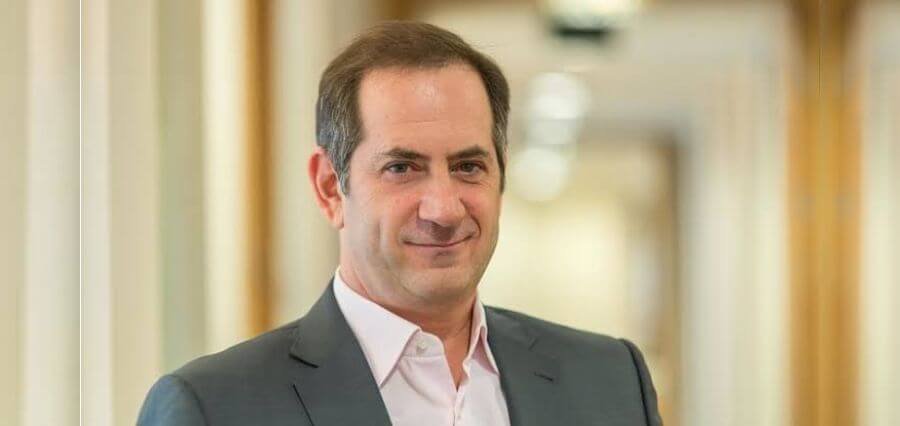In just over a decade, the Genesis Prize has evolved from an ambitious concept into a globally recognized philanthropic powerhouse with impact far exceeding its original scope. Under the steady leadership of co-founder and chairman Stan Polovets, the “Jewish Nobel” has pioneered an innovative approach to honoring achievement while catalyzing social change, leveraging the $1 million annual award into more than $50 million in philanthropic initiatives worldwide.
From Vision to Reality: The Foundation Years
When in 2013, he sought to create something more impactful than another ceremonial honor. Established with a $100 million endowment, the Prize was designed to celebrate Jewish achievement while fostering a sense of pride and connection within the global Jewish community.
“We are living in a time where assimilation and antisemitism have inhibited open expressions of Jewish identity around the globe,” Stan Polovets explains. “The Foundation saw an opportunity to use a new tool for fostering that pride: spotlighting Jewish individuals who have achieved unparalleled professional success while speaking openly and positively about their Jewish identity.”
The inaugural Genesis Prize in 2014 set a precedent that would define the award’s unique character. Michael Bloomberg, the former mayor of New York City, became the first laureate and immediately established what would become the foundation’s signature approach – choosing to forgo the $1 million financial award and instead directing it to create the Genesis Generation Challenge, a global competition for young social entrepreneurs.
This model of redirecting the prize money toward causes aligned with Jewish values became the cornerstone of the foundation’s distinctive philanthropic strategy. Rather than simply honoring individual achievement, the Genesis Prize would serve as a catalyst for broader philanthropy and social impact.
Building a Sustainable Impact Model
, the Genesis Prize evolved rapidly from concept to implementation, with each year bringing new refinements to its approach. Early on, Polovets recognized that maximizing impact would require strategic partnerships and innovative funding mechanisms.
“One very successful strategy has been our matching grants programs, which has doubled and tripled the annual $1 million prize, galvanizing other funders around important philanthropic causes,” Polovets notes.
This approach was exemplified in 2015 when laureate Michael Douglas directed his prize toward promoting inclusion of interfaith families in Jewish communities. Through collaboration with the Jewish Funders Network, the foundation implemented a matching grants program that generated $3.3 million in support for 27 nonprofit organizations across North America.
The success of this model led to its replication in subsequent years. When violinist Itzhak Perlman received the award in 2016, a similar matching program turned his $1 million prize into $3.2 million for organizations supporting people with disabilities.
“None of us can do this work alone,” Stan Polovets emphasizes. “Every year, we have partnered with individuals, organizations, and donors to achieve our goals. It truly is a ‘two heads are better than one’ approach.”
Evolving Through Challenges
The foundation’s early years weren’t without obstacles. Polovets notes, “We have not had one year that was like a previous one. From three canceled award ceremonies due to wars in Syria, Ukraine, and COVID, to significantly expanding the nominations and selection process to attract global input, GPF has had to adapt quickly to changing circumstances from year to year.”
This adaptability proved crucial as global events presented new challenges and opportunities. When COVID-19 struck in 2020, laureate Natan Sharansky directed his award funds to organizations helping the most vulnerable populations affected by the pandemic. This demonstrated the prize’s ability to pivot toward urgent needs – a flexibility that would become increasingly important in subsequent years.
Another significant evolution came in the selection process itself. “Prior to 2020, it was mostly internal,” explains Polovets. “The Genesis Prize Foundation solicited nominations from 1,000-plus leaders around the world, and those nominations were trimmed down to a smaller group based on alignment with the criteria for the prize. Then a small group of judges selected the laureate.”
In 2020 and 2021, the foundation experimented with a more inclusive approach, inviting public nominations and voting through social media and email. This expanded participation ensured the prize remained connected to the broader Jewish community while increasing its global visibility. The voting resulted in director Steven Spielberg and Pfizer CEO Albert Bourla receiving the Prize during these two years.
Expanding the Prize’s Scope
Additionally, Stan Polovets expanded the scope and impact of the foundation’s work by launching the Genesis Prize Lifetime Achievement Award, with U.S. Supreme Court Justice Ruth Bader Ginsburg as its inaugural recipient. This new category allowed recognition of figures whose lifetime contributions deserved celebration, complementing the annual prize for active leaders. In 2021, the Genesis Prize Foundation honored Rabbi Jonathan Sacks with a posthumous Lifetime Achievement Award recognizing his extraordinary role inspiring the next generation of Jews, and for his illustrious life-long work as a teacher of Jewish values and an advocate of inter-religious and inter-cultural dialogue.
The foundation also demonstrated remarkable agility in responding to global crises. In 2023, rather than selecting an individual laureate, the Genesis Prize recognized Jewish activists and organizations providing humanitarian aid to Ukrainian citizens following Russia’s invasion. This pivot reflected the foundation’s commitment to addressing urgent needs and honoring collective efforts toward saving lives.
This trend continued in 2024 when. The foundation’s response to this humanitarian crisis demonstrated its ability to mobilize resources and attention toward pressing issues.
“The purpose of this year’s award is to raise international awareness of the plight of the hostages and provide humanitarian assistance focused on recovery, rehabilitation, and treatment,” stated Stan Polovets at the time. “The Genesis Prize is a humanitarian award, and this year, it seeks to achieve three things: ensure that the world does not forget the plight of the captives; provide additional aid to organizations focused on assisting the hostages and their families; and honor the selfless work of organizations that spontaneously emerged after October 7.”
Polovets added: “Our foundation mounted an international public awareness campaign to ensure that the plight of the hostages remains on top of the agenda of global leaders”. “We also funded legal expenses for hostage families who traveled to the Hague to present thousands of pages of evidence and personal testimony in their lawsuit against Hamas terrorists at the International Court of Justice.”
This evolution in focus reflects Polovets’ vision of a foundation that remains responsive to current needs while staying true to its core mission of promoting Jewish achievement, values, and identity.
Maximizing Global Impact
One of the most striking achievements under Stan Polovets’ leadership has been the foundation’s ability to amplify its impact far beyond the initial $1 million prize. Through strategic partnerships, matching grants, and encouraging additional giving by its laureates, the Genesis Prize has generated over $50 million in philanthropic projects supporting more than 230 organizations across 31 countries.
Some laureates have taken this multiplier effect to remarkable heights. When Robert Kraft received the prize in 2019, he announced the creation of the Foundation to Combat Antisemitism with a personal contribution of $20 million in addition to his prize funds. In the years since, the Foundation created a command center to analyze antisemitism online, conducted research regarding Americans’ attitudes toward Jewish hate, and initiated the global “Blue Square” campaign to raise awareness of Jewish hate and all hate.
In 2018, Israeli philanthropist Morris Kahn was so inspired by inaugural Genesis Lifetime Achievement Awardee Ruth Bader Ginsburg that he contributed an additional $1 million to the grant pool that year, to support organizations working for women’s empowerment.
Steven Spielberg and wife Kate Capshaw contributed an additional $1 million to double the prize award in 2021. His award went to organizations working for racial and economic justice in the United States.
Another example is Albert Bourla, the 2022 Laureate, who not only joined with The Genesis Prize Foundation to direct his $1 million award to the , but also made a donation to Sons and Daughters of Jewish Deportees from France, a foundation established by world-renowned Nazi hunters Serge and Beate Klarsfeld to preserve the memories of French Holocaust victims and hold accountable former Nazi war criminals.
A Decade of Achievement and Beyond
As the Genesis Prize celebrated its tenth anniversary in 2023, it honored entertainment icon Barbra Streisand, who directed her prize funds to four causes: women’s health, climate action, truth in public discourse, and aid to Ukraine. This milestone provided an opportunity to reflect on the prize’s evolution and impact over its first decade.
From its origins as a vision to celebrate Jewish achievement, the Genesis Prize has grown into a multifaceted philanthropic force with global reach and influence. Through Stan Polovets’ strategic leadership, the foundation has established a distinctive model that maximizes impact through collaboration, adaptability, and a deep commitment to Jewish values.
“The vision of the Genesis Prize is a strong and vibrant Jewish people, aware of its roots while looking to the future, a Jewish community flourishing in diversity yet united in appreciation of Jewish values and support for the Jewish state,” Polovets says. “Based on this vision, we aim to bring the Jewish community together around its most critical issues.”
As it enters its second decade, the Genesis Prize continues to evolve under Polovets’ guidance. The foundation’s recent focus on collective humanitarian efforts signals a broadening of its approach, while its core mission of celebrating Jewish achievement and fostering pride remains central to its identity.
Through strategic innovation, thoughtful leadership, and unwavering commitment to its founding values, the Genesis Prize has established itself as a significant force in global philanthropy. Stan Polovets’ vision has transformed an ambitious idea into a thriving institution whose impact extends far beyond the annual award itself, creating a lasting legacy of recognition, inspiration, and positive change.
With each passing year and each new laureate or a group of honorees, the Genesis Prize continues to demonstrate how purposeful philanthropy can bridge individual achievement and collective impact, celebrating excellence while addressing the most pressing challenges facing the Jewish community and the world at large.
Credit: insightssuccess.com











